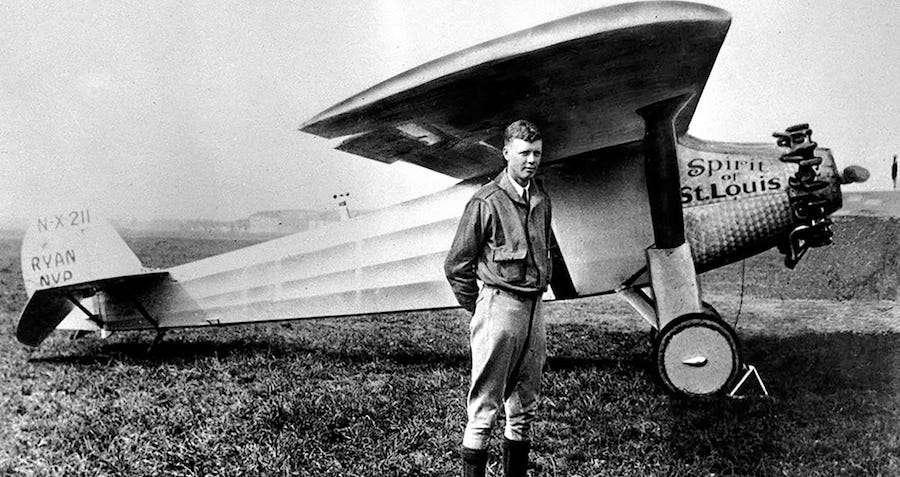Charles Lindbergh’s legacy is motivating a new era of aircraft innovation in an effort to reduce the aviation industry’s carbon footprint.
Celebrating 95 years since Charles Lindbergh’s historic transatlantic flight on May 21, 1927, the Lindbergh Foundation along with The Prince Albert II of Monaco Foundation and the National Business Aircraft Association announced a new alliance in an effort to decarbonize the aviation industry. The prize is timed to overlap with the 100th anniversary of the historic flight.
The new Forever Flight Alliance will use incentive-based prizes, similar to the Orteig Prize that motivated Lindbergh to make the flight from New York to Paris, in order to advance efforts to reduce carbon emissions across the aviation sector. The announcement was made during the European Business Aviation Convention & Exhibition in Geneva, Switzerland.
The Forever Flight Alliance
“As we approach the centennial anniversary of Charles Lindbergh’s 1927 New York to Paris flight, we have an opportunity that is not just a celebration, but a call to action to make aviation permanently sustainable,” Erik Lindbergh, grandson of Charles Lindbergh and chairman of The Lindbergh Foundation, said in a statement. “The Forever Flight Alliance builds on the success initiated with the Orteig Prize that incentivized Charles Lindbergh’s historic flight across the Atlantic and the Ansari XPRIZE that launched the commercial spaceflight revolution.”
The Forever Flight Alliance is focused on three key objectives: to establish a global network of innovators and thought leaders in the space, to map and accelerate the path toward net-zero aviation, and incentivize the industry to accelerate breakthroughs that support the Alliance’s ultimate goal of reducing the industry’s carbon footprint.

The Forever Flight Alliance has partnered with the XPRIZE Foundation, the global leader in innovative competition models aimed at solving the world’s biggest challenges with prize monies ranging from $500,000 to $20 million.
“Seeking to win the $25,000 Orteig prize, Charles Lindbergh’s 1927 flight caused a step-change in aviation. The power of competition through incentive prizes has been proven throughout history as a great motivator,” said Gregg Maryniak, co-founder of the XPRIZE Foundation.
“I would characterize it as speed dating for radical solutionists,” he says. “We want to get people who are interested in solutions and have maybe parts of solutions or even just clear definitions of what needs to get solved and bring them together and get some high-level silo-busting going.”
Aviation’s climate impact
Aviation is responsible for about 2.5 percent of global CO2 emissions. Efforts are underway to reduce its impact, including increased use of sustainable aviation fuel (SAF), lighter planes, and carbon offsets.
Most recently, U.K. Transport Secretary Grant Shapps announced plans for the first transatlantic SAF-powered flight. It’s expected to happen by the end of next year.
“This trailblazing net-zero emissions flight, a world first, will demonstrate the vital role that sustainable aviation fuel can play in decarbonising aviation in line with our ambitious net zero targets,” Shapps said last week.
Other efforts are underway, including hydrogen-powered planes and electric ones. In January, Rolls-Royce’s Spirit of Innovation—named in honor of Lindbergh’s Spirit of St. Louis—broke two speed records for an all-electric plane.

“Achieving the all-electric world-speed record is a fantastic achievement for the ACCEL team and Rolls-Royce,” Warren East, CEO, Rolls-Royce, said in a statement.
“This is another milestone that will help make ‘jet zero’ a reality and supports our ambitions to deliver the technology breakthroughs society needs to decarbonise transport across air, land, and sea,” he said.
The XPRIZE
“In 1927, my grandfather realized that his greatest asset resided in the confidence and foresight of his backers in the Spirit of St. Louis. To accomplish this new audacious goal, we need the backing of visionaries who can propel us on this mission toward sustainable aviation. Guided by history, we are embarking on one of the greatest challenges of our time.”
Lindbergh says the goal is to raise $3 million over the next three years to administer the building of the brain trust and the discovery of these prizes. The Alliance says it’s looking for about a dozen partners for the prize.
“The grand challenge of our time in aviation is carbon emissions and global warning,” said Lindbergh. “And if we don’t address it in every possible way, aviation will be moot. We need to take every solution we can and move it forward for our children, because they deserve the freedom that we get today from aviation. Aviation changed humanity and we don’t want to let that go.”


